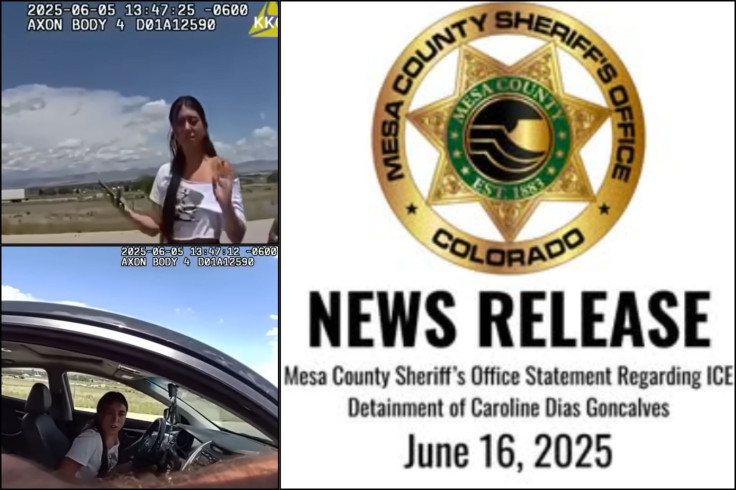
The arrest and detention of a 19-year-old college student revealed that Colorado law enforcement officers unlawfully shared immigration information with Immigration and Customs Enforcement (ICE) through a group chat with federal agents.
On June 5, Investigator Alexander Zwinck pulled over Caroline Dias Goncalves, a 19-year-old University of Utah student and Dreamer, for allegedly driving "way, way too close" to a semitruck, body cam footage obtained by NBC News revealed. Goncalves cooperated fully, sitting in Zwinck's patrol car while he manually entered her information.
During their 20-minute conversation, Zwinck commented that Dias Goncalves had "a bit of an accent." The teen student then shared that she was born in Brazil and had lived in Utah for 12 years. Zwinck ultimately released her with a warning and told her to "take it easy."
Shortly after the stop, however, Goncalves was pulled over again, this time by ICE agents, and taken into custody. She is currently being held at the Denver Contract Detention Facility.
An internal investigation by the Mesa County Sheriff's Office later revealed that Zwinck was part of a group chat with local, state and federal law enforcement officials. The chat was allegedly created for a "multi-agency drug interdiction effort focusing on the highways throughout Western Colorado," but was ultimately used to share immigration information that led to Goncalves' arrest.
The Sheriff's Office said federal agents in the group began using the chat to target immigrants, according to a statement released Monday. The group conversation, the statement added, "resulted in the later contact between ICE and Miss Dias Goncalves."
The investigation revealed "federal representatives within the communication group began using the material collected for drug interdiction efforts to extrapolate immigration information for the purposes of ICE enforcement," which is "contradictory to Colorado law."
Colorado state law includes protections for immigrants, such as limiting cooperation between local law enforcement and federal immigration authorities. It does not, however, ban such coordination entirely. The Mesa County Sheriff's Office stated it was "unaware that the communication group was used for anything other than drug interdiction efforts," and has since withdrawn all of its personnel from the group.
© 2025 Latin Times. All rights reserved. Do not reproduce without permission.









